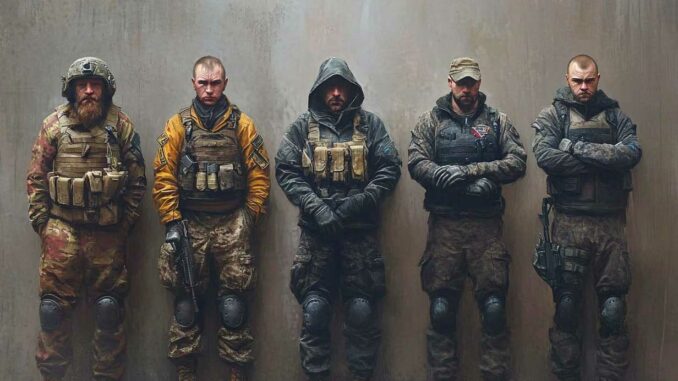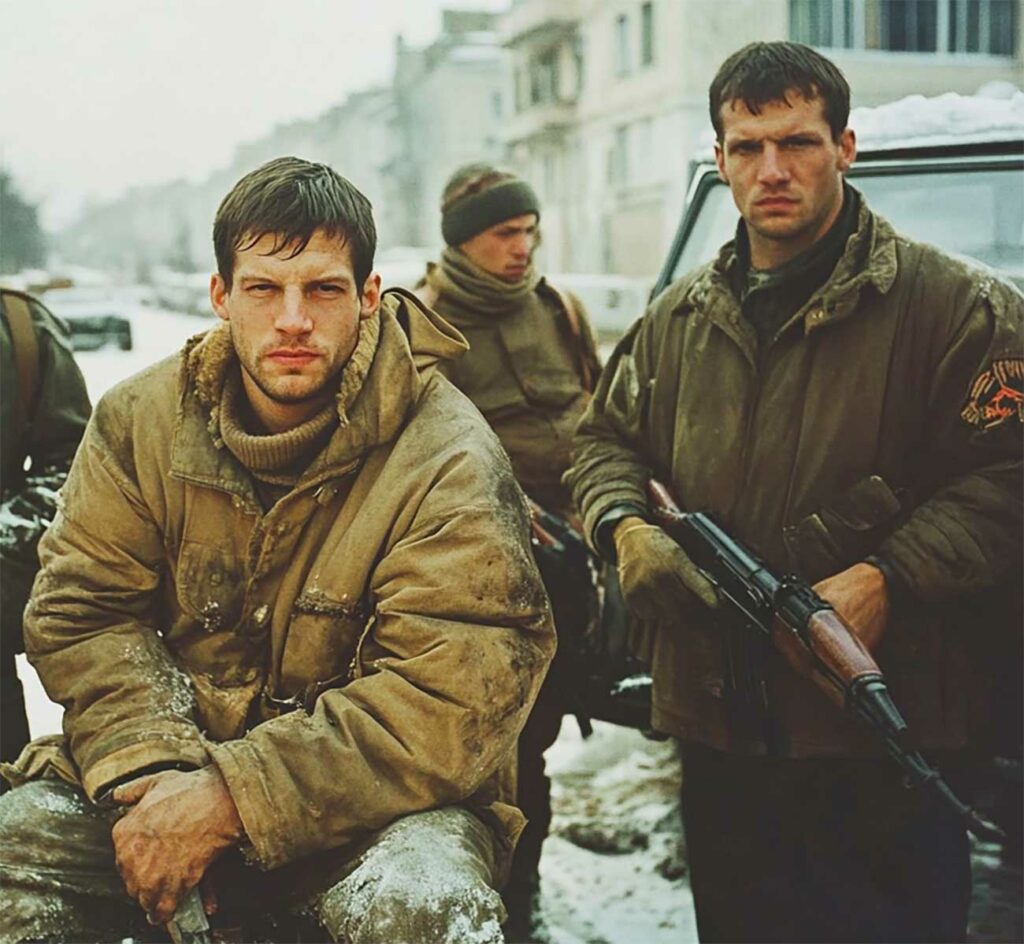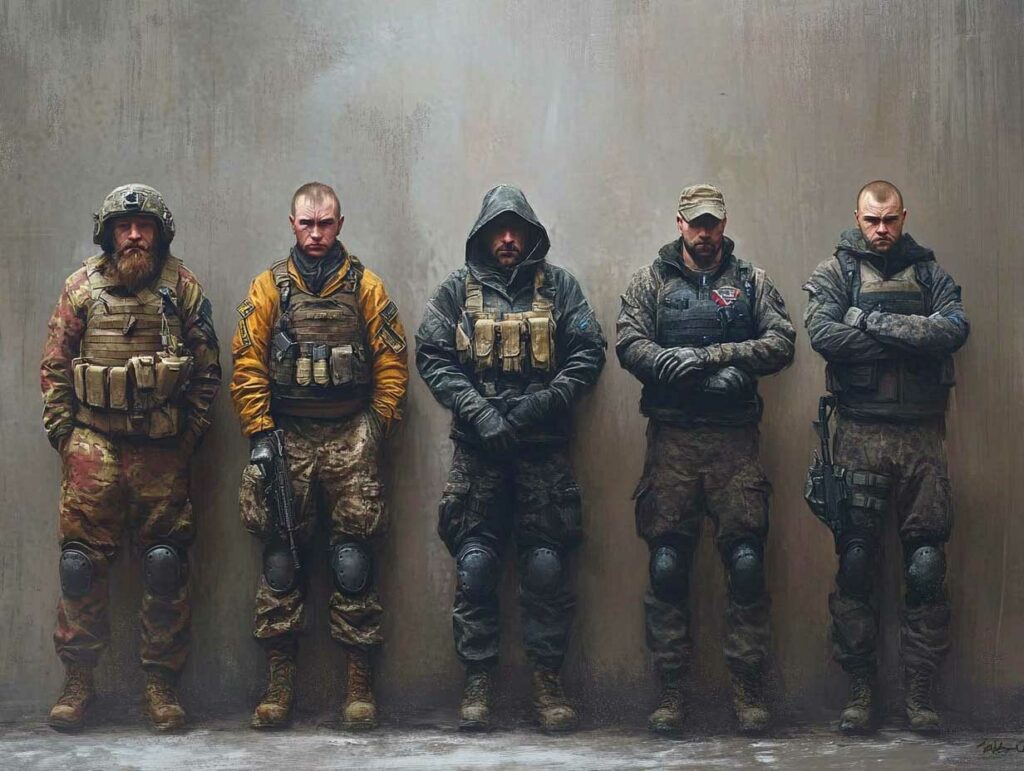
Private military companies are establishing themselves as invisible pillars of contemporary conflicts, involved in logistics, combat, and diplomacy.
Private military companies (PMCs) or private security contractors (PSCs) have become key players in contemporary conflicts, particularly since the end of the Cold War. Historically rooted in pre-industrial military structures, they have transformed over the decades to meet the growing need for logistical support, training, and security in war zones, particularly in Africa, Iraq, and Afghanistan. Groups such as Wagner (Russia) and SADAT (Turkey) symbolize a strategic outsourcing of state military operations, often outside traditional legal frameworks. These companies now bring together former soldiers, technical specialists, and security experts, sometimes better paid than regular troops, and participate in conflicts with a level of involvement that blurs the lines between public and private warfare.
The rise of Russian and Turkish PMCs in Africa and the Middle East
Since the 2010s, the growing presence of Russian and Turkish private military companies in Africa and the Middle East has been reshaping the landscape of asymmetric conflicts. Two structures dominate: the Wagner Group, founded by Dmitry Utkin, a former member of the Russian special forces, and SADAT, created by Adnan Tanriverdi at the request of President Erdogan.
The Wagner Group, now integrated into the Russian state apparatus, is deployed in more than 15 African countries, including Libya, Mali, the Central African Republic, Sudan, and the Republic of Congo. Wagner acts as an unofficial extension of Russian foreign policy, conducting military operations, providing security for allied leaders, and controlling strategic mineral resources. SADAT, for its part, has been mobilized to train and command Syrian mercenaries serving Turkey in conflicts in Libya, the Caucasus, and Syria.
Unlike Wagner, which mainly recruits former Russian soldiers, SADAT employs a larger number of foreign fighters, particularly from Sunni backgrounds, enabling it to deploy a more significant force. Both entities position themselves as geopolitical tools enabling the powers concerned to act in gray areas without official military involvement.
Their use raises growing concerns about international humanitarian law, as these groups often operate without any real legal framework. In the Central African Republic, for example, Wagner has been accused by the UN of serious human rights violations. Their proliferation suggests that states are seeking to outsource military risks while retaining indirect operational control.

The United States and the institutionalization of military contractors
The United States has made extensive use of private military contractors since the conflicts in Iraq and Afghanistan. Between 2010 and 2013, there were approximately 105,000 contractors in Afghanistan. In 2012, 28,000 foreign private security guards protected US bases, and 1,000 remained in 2021, mainly around the embassy in Kabul.
These personnel, often former military personnel, provided security for bases, convoys, and diplomats, but also carried out technical missions such as training the Afghan police and destroying opium crops. In 2009, half of the US force in Iraq was made up of civilians, with a peak of 15,279 security guards.
The use of these companies is motivated by budgetary and operational considerations: it is often less expensive to outsource certain functions to civilians than to mobilize regular troops, especially since the increasing technical sophistication of weapons and communication systems requires rare expertise. Technical contractors are generally better paid, particularly in the medical, IT and aircraft maintenance sectors.
However, this system has its limits: media coverage of certain incidents (particularly those involving the company Blackwater in Iraq) has tarnished their image. An attempt at “insourcing” was made, but quickly abandoned due to the loss of operational skills and increased costs.
A thousand-year-old tradition of using civilian auxiliaries
The use of civilian contractors in the armed forces is nothing new. Since ancient times, military forces have used non-combat personnel to provide logistical and medical support. In Roman times, less than 50% of the workforce consisted of “camp followers.” This practice was revived in the 18th century with the training of troops in self-sufficiency, then modified in the 19th century with the mechanization of logistics via railways and steamships.
Modern conflicts have seen varying proportions of civilian auxiliaries:
- Vietnam War: 16%
- Korean War: 28%
- World War II: 12%
- World War I: 4%
- 1991 Gulf War: 2%, due to the brevity of the conflict and support from Gulf states
- Iraq 2009: 50% contractors
These figures show a gradual return to a model in which the majority of logistical, technical, and security tasks are outsourced, particularly because today’s professional armies, which are better paid, cannot be assigned to support functions without reducing their operational effectiveness.

The economic, political, and operational challenges of private contractors
The widespread use of contractors raises questions of sovereignty, cost, and transparency. Economically, a civilian contractor can cost up to twice as much as a soldier, particularly for highly specialized functions. However, in most cases, they are less expensive than deploying uniformed personnel, especially for one-off missions or in remote areas.
Militarily, these agents free up troops for combat missions. In contexts such as Afghanistan or the Sahel, where local skill levels are low, these contractors become essential for operating bases or complex equipment.
Politically, they allow states to conduct operations without formal declaration, as was observed with Wagner in Ukraine before 2022, or SADAT in Azerbaijan. However, this opacity fuels accusations of human rights violations and indirect destabilization.
Finally, their massive presence raises the question of regulation. With little oversight under international law, these groups operate in a legal gray area, sometimes with complete impunity. Only inter-state coordination could regulate their activities, but the divergent strategic interests of the major powers make such a consensus unlikely in the short term.
War Wings Daily is an independant magazine.